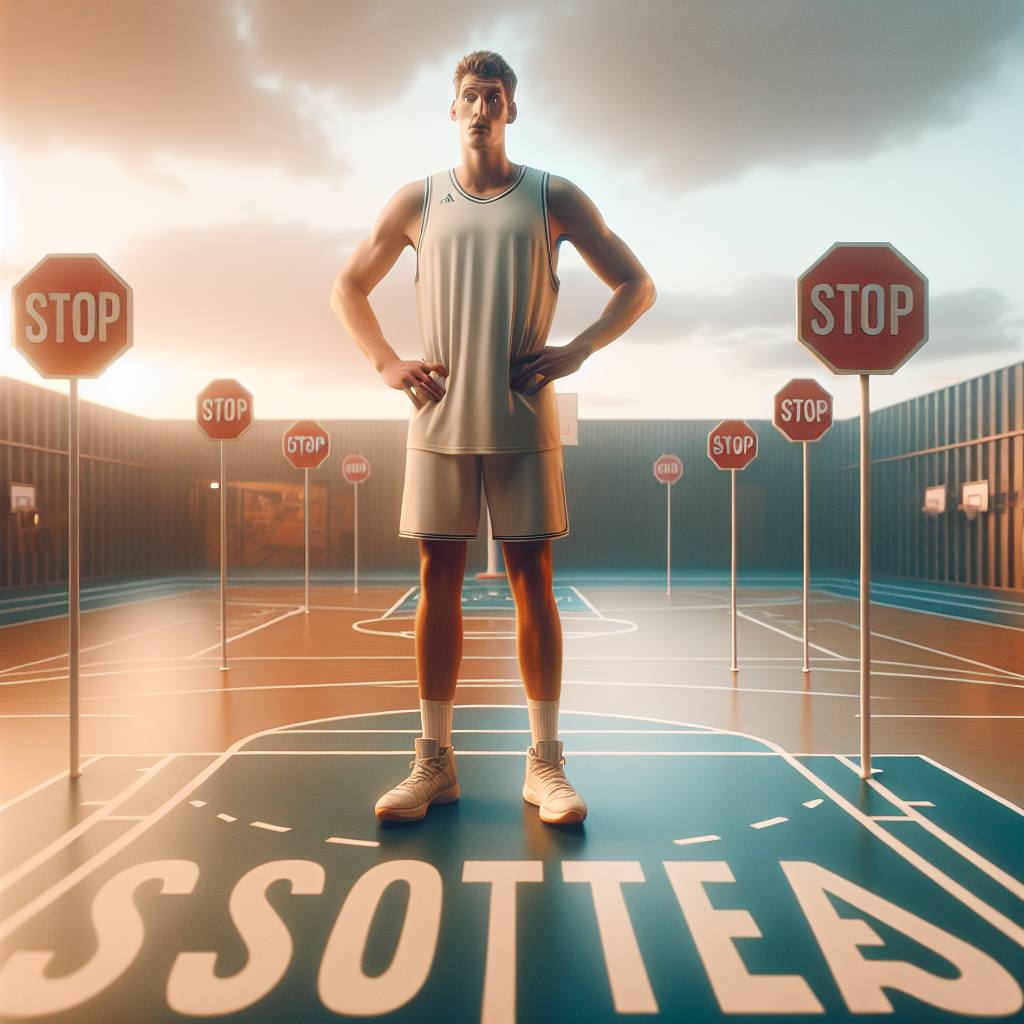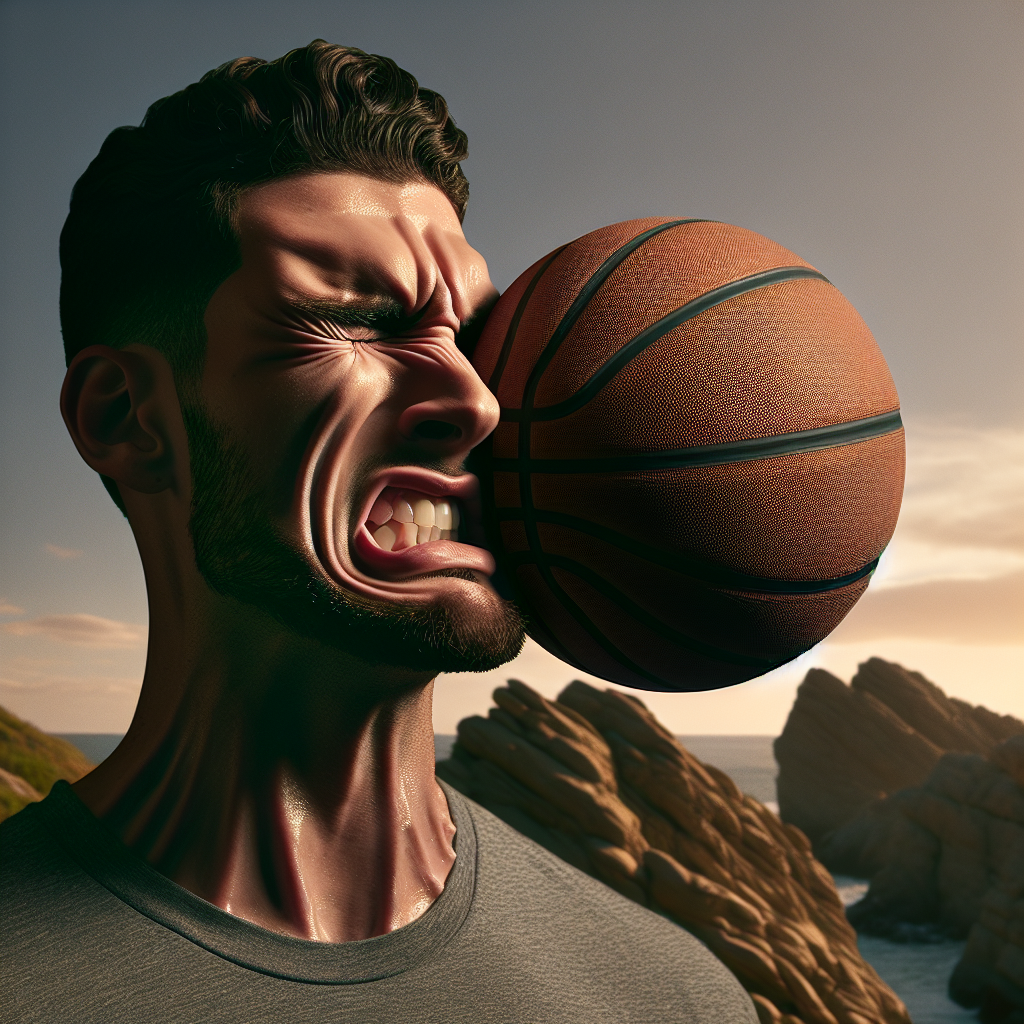Kyle Kuzma on Wizards: “We can’t guard a stop sign”

Kyle Kuzma’s Defensive Struggles: Analyzing the We Can’t Guard a Stop Sign Comment
Kyle Kuzma’s recent comment about the Washington Wizards’ defensive struggles, encapsulated in his remark, “We can’t guard a stop sign,” has sparked considerable discussion among fans and analysts alike. This candid admission highlights a critical issue that has plagued the team throughout the season. Kuzma’s statement, while hyperbolic, underscores the severity of the Wizards’ defensive deficiencies and serves as a call to action for both the players and coaching staff.
The Wizards’ defensive woes are not a new phenomenon, but Kuzma’s blunt assessment brings them into sharper focus. The team’s defensive rating, a metric that measures the number of points allowed per 100 possessions, has consistently ranked among the worst in the league. This statistic is a clear indicator of the systemic issues that have hindered the Wizards’ ability to compete at a high level. Transitioning from this point, it is essential to delve into the specific factors contributing to these defensive struggles.
One of the primary issues is the lack of cohesion and communication on the defensive end. Basketball is a team sport that requires synchronized effort, especially on defense. When players fail to communicate effectively, it leads to missed assignments, open shots for opponents, and easy scoring opportunities. Kuzma’s comment reflects a broader frustration with the team’s inability to function as a cohesive defensive unit. This lack of synergy is often evident in their rotations and help defense, where players are frequently out of position or slow to react.
Moreover, individual defensive skills also play a significant role in the team’s overall performance. While Kuzma himself is known for his offensive prowess, his defensive capabilities have often been questioned. His struggles on defense are emblematic of a larger issue within the team, where several players are more offensively inclined and lack the defensive acumen required to compete at the highest level. This imbalance creates a scenario where the team can score points but struggles to prevent the opposition from doing the same.
In addition to individual and team dynamics, coaching strategies are also a critical component of effective defense. The Wizards’ coaching staff, led by head coach Wes Unseld Jr., has faced criticism for their defensive schemes and adjustments. Effective coaching involves not only devising a solid game plan but also making in-game adjustments to counter the opponent’s strategies. The inability to adapt and respond to the opposing team’s offensive tactics has been a recurring issue for the Wizards, further exacerbating their defensive struggles.
Furthermore, the physical and mental fatigue associated with a grueling NBA season cannot be overlooked. Consistent defensive effort requires a high level of stamina and mental focus, both of which can wane over the course of an 82-game season. The Wizards’ roster, which has dealt with injuries and lineup changes, may find it challenging to maintain the necessary intensity on defense. This fatigue can lead to lapses in concentration and effort, resulting in the kind of defensive breakdowns that Kuzma alluded to in his comment.
In conclusion, Kyle Kuzma’s remark about the Wizards’ inability to “guard a stop sign” is a stark reminder of the team’s ongoing defensive challenges. The issues are multifaceted, involving a lack of cohesion, individual defensive skills, coaching strategies, and the physical and mental demands of the season. Addressing these problems requires a concerted effort from both the players and the coaching staff. Only through improved communication, better individual defense, strategic coaching, and sustained effort can the Wizards hope to overcome their defensive deficiencies and become a more competitive team.
Impact of Kyle Kuzma’s Defense on the Wizards’ Performance

Kyle Kuzma’s candid remark, “We can’t guard a stop sign,” has sparked considerable discussion regarding the Washington Wizards’ defensive struggles. This statement, while humorous on the surface, underscores a critical issue that has plagued the team throughout the season. Kuzma’s observation is not merely a critique but a reflection of the broader defensive challenges that the Wizards face, which have significantly impacted their overall performance.
The Washington Wizards have long been recognized for their offensive prowess, with players like Bradley Beal and Kristaps Porziņģis leading the charge. However, their defensive capabilities have often been called into question. Kuzma’s comment brings to light the glaring deficiencies in their defensive strategies and execution. The inability to effectively guard opponents has resulted in numerous high-scoring games where the Wizards find themselves unable to maintain leads or close out games successfully.
Kyle Kuzma himself, while primarily known for his offensive contributions, has shown flashes of defensive potential. His size and athleticism make him a versatile defender capable of guarding multiple positions. However, individual efforts alone are insufficient to address the systemic issues within the team’s defensive framework. The Wizards’ defensive woes are a collective problem that requires a cohesive and strategic approach to resolve.
Transitioning from individual performances to team dynamics, it becomes evident that the Wizards’ defensive struggles are rooted in a lack of communication and coordination. Effective defense in basketball is predicated on teamwork, where players must seamlessly switch assignments, provide help defense, and contest shots. The Wizards, however, often appear disjointed on the defensive end, leading to easy scoring opportunities for their opponents. This lack of synergy is a critical area that needs addressing if the team hopes to improve its defensive standing.
Moreover, the coaching staff plays a pivotal role in shaping the team’s defensive identity. Wes Unseld Jr., the head coach, has emphasized the importance of defense since his appointment. Despite this, the Wizards have struggled to translate these principles into consistent on-court performance. This disconnect suggests that there may be underlying issues in the implementation of defensive schemes or perhaps a need for a more rigorous emphasis on defensive drills during practice sessions.
In addition to strategic adjustments, the Wizards must also consider personnel changes to bolster their defense. The acquisition of players with a defensive mindset and skill set could provide the necessary boost to their defensive lineup. While offensive firepower is essential, a balanced team with strong defensive capabilities is crucial for sustained success in the NBA. The front office must prioritize this balance in their roster construction moving forward.
Furthermore, the mental aspect of defense cannot be overlooked. Defensive intensity and effort are often driven by a team’s collective mindset and culture. The Wizards must cultivate a culture where defense is valued as highly as offense. This cultural shift requires buy-in from all players, starting with leaders like Kuzma, Beal, and Porziņģis, who must set the tone for their teammates.
In conclusion, Kyle Kuzma’s remark about the Wizards’ defensive struggles serves as a stark reminder of the challenges the team faces. Addressing these issues requires a multifaceted approach, encompassing strategic adjustments, personnel changes, and a cultural shift towards valuing defense. Only through a concerted effort can the Wizards hope to transform their defensive identity and enhance their overall performance.
Strategies for Improving Kyle Kuzma’s Defensive Skills on the Wizards
Kyle Kuzma’s candid remark, “We can’t guard a stop sign,” underscores a critical issue facing the Washington Wizards: their defensive struggles. As a key player on the team, Kuzma’s defensive performance is pivotal to the Wizards’ overall success. Improving his defensive skills requires a multifaceted approach, encompassing both individual and team strategies. By focusing on these areas, Kuzma can enhance his defensive capabilities, thereby contributing to a more robust team defense.
To begin with, individual defensive skills are foundational. Kuzma must prioritize improving his footwork and lateral quickness. These attributes are essential for staying in front of quicker opponents and effectively contesting shots. Incorporating agility drills into his training regimen can help Kuzma develop these skills. Additionally, working with a defensive specialist coach can provide personalized feedback and targeted exercises to address specific weaknesses in his game.
Moreover, understanding defensive positioning is crucial. Kuzma should study game film to analyze his positioning during defensive plays. This will help him recognize patterns and anticipate opponents’ movements. By positioning himself correctly, Kuzma can cut off driving lanes and force opponents into less favorable shooting situations. Furthermore, mastering the art of closeouts is vital. Effective closeouts can disrupt shooters and prevent easy baskets. Kuzma should practice closing out with high hands and maintaining balance to avoid fouling.
Transitioning to team strategies, communication is a cornerstone of effective defense. Kuzma must become more vocal on the court, calling out screens, switches, and defensive assignments. This not only helps him stay engaged but also ensures that his teammates are aware of their responsibilities. Improved communication can lead to better team cohesion and fewer defensive breakdowns. Additionally, Kuzma should work on developing a strong understanding of team defensive schemes. Familiarity with concepts such as help defense, rotations, and zone coverage will enable him to execute the team’s defensive game plan more effectively.
Another critical aspect is physical conditioning. Defense requires sustained effort and energy. Kuzma should focus on building his stamina through cardiovascular training and strength conditioning. A well-conditioned athlete can maintain high-intensity defense throughout the game, reducing the likelihood of lapses due to fatigue. Furthermore, strength training can enhance Kuzma’s ability to hold his ground against stronger opponents in the post.
Incorporating mental preparation is equally important. Defense is as much about mindset as it is about physical ability. Kuzma should adopt a tenacious and relentless attitude towards defense. Visualization techniques can be beneficial, allowing him to mentally rehearse defensive scenarios and responses. This mental preparation can translate into more instinctive and confident defensive play during games.
Lastly, embracing a culture of accountability within the team can drive improvement. Kuzma and his teammates should hold each other accountable for defensive lapses. Constructive feedback and mutual support can foster a collective commitment to defense. By setting high standards and striving to meet them, the Wizards can gradually transform their defensive identity.
In conclusion, enhancing Kyle Kuzma’s defensive skills on the Washington Wizards involves a comprehensive approach that addresses individual techniques, team strategies, physical conditioning, mental preparation, and a culture of accountability. By focusing on these areas, Kuzma can become a more formidable defender, ultimately contributing to a stronger and more cohesive team defense. This transformation is essential for the Wizards to overcome their defensive challenges and achieve greater success on the court.

